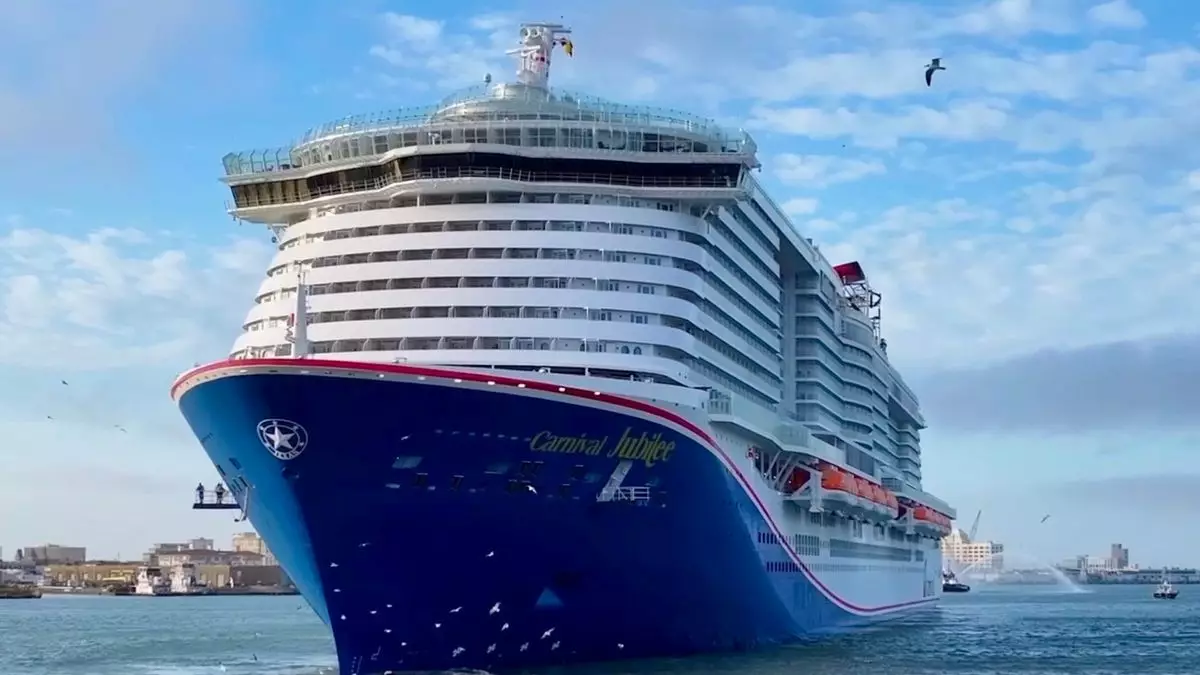The cruise industry is poised for strong demand in 2024, as travelers continue to prioritize experiences over material possessions. However, despite the positive outlook, the sector is not without its challenges. This article delves into the potential obstacles and opportunities that await the cruise industry in the coming year.
Changing Market Dynamics
Many cruise companies and travel agencies have already witnessed a surge in bookings for 2024, with high demand and higher prices. This gives cruise lines a competitive edge heading into the new year. To leverage this advantageous position, some companies are planning aggressive national advertising campaigns or targeted marketing initiatives centered around their homeports. The industry’s advance bookings, effective marketing strategies, and prominent Wave promotions will likely result in limited available capacity for 2024, shifting the focus towards 2025.
The Rise of the Drive Market
Another significant trend that will shape the cruise industry in 2024 is the growing importance of the drive market. More cruise brands are strategically positioning themselves to attract guests within driving distance, such as Port Canaveral near Orlando and the Port of Galveston in Texas. The objective is to appeal to first-time cruisers who prefer the convenience and accessibility of nearby embarkation points. Additionally, the role of private islands owned by cruise lines will continue to expand. These private beach destinations offer exclusivity and enhanced experiences for cruisers, further driving demand.
Shipbuilding Dynamics
While the pace of shipbuilding is expected to slow in 2024 after years of rapid expansion, it will not be a long-lasting trend. Shipyard delays and supply chain disruptions caused by the Covid-19 pandemic created bottlenecks in recent years, but the shipbuilding industry is bouncing back. The next wave of new ships is already under construction and expected to debut in 2025. However, the year 2024 will not see the introduction of any new expedition ships. Nevertheless, expedition cruising is anticipated to gain mainstream popularity among consumers. The demand for travel experiences and exploration of bucket-list destinations will continue to drive growth in this sector. Younger travelers, particularly in their 30s and 40s, who prioritize experiences over material possessions and have the flexibility to work remotely, will play a crucial role in fueling this growth.
Economic and Political Uncertainties
The cruise industry, like any other sector, is not immune to economic fluctuations. However, cruise company executives remain confident about the industry’s resilience. Low unemployment rates and the value proposition of cruise vacations, especially when compared to all-inclusive land resorts and theme parks, are expected to keep the industry in a strong position, even during an economic downturn or recession. Nevertheless, the 2024 election introduces an element of uncertainty. The distraction caused by the election cycle, combined with uncertainty about the future economic landscape, could potentially impact travel habits. Travelers may hesitate to spend money on vacations amidst a period of political transition. The effect of the election is likely to be more significant in the latter half of the year, affecting bookings for 2025 sailings.
Certain valuable destinations may remain off-limits for cruisers in 2024, including St. Petersburg, Russia, and Israel. The geopolitical conflicts in these regions could delay the return of cruise lines to these ports. Moreover, there is an increasing global trend of cities taking measures to reduce cruise tourism within their limits. Some cities have moved ports away from heavily populated city centers or imposed higher fees and taxes on cruise lines, citing environmental concerns. This movement may influence cruise companies’ decisions and prompt them to explore alternative ports and destinations.
In line with the growing emphasis on sustainability and reducing environmental impact, cruise lines may prioritize alternative fuels in 2024. Many companies have already tested biofuel and are actively seeking ways to source larger and more reliable volumes of it for their operations. The industry’s focus on clean fuel options demonstrates a commitment to sustainable practices and addressing environmental challenges associated with traditional fuel consumption.
The cruise industry is poised for strong demand in 2024, driven by travelers’ prioritization of experiences and adventure. However, the industry must navigate various challenges, including economic uncertainties, geopolitical conflicts, and environmental concerns. By capitalizing on changing market dynamics, embracing innovation, and prioritizing sustainable practices, cruise companies can position themselves for success in the ever-evolving travel landscape.

